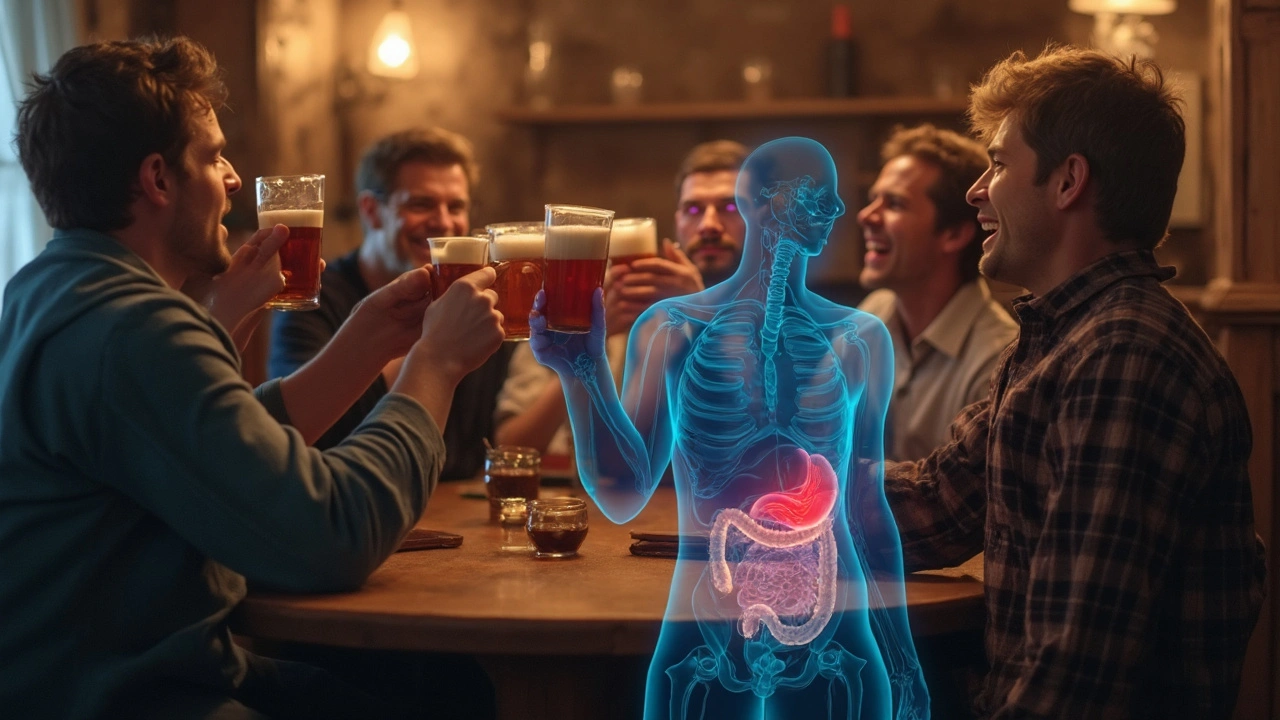Alcohol and Your Health: What You Need to Know About Safety, Medications, and Everyday Choices
Alcohol is everywhere—at family barbecues, celebrations, and even just winding down after work. But have you thought about what’s really going on in your body each time you take a drink? Besides the buzz, there’s a bigger story: alcohol can seriously affect your health and has tricky interactions with a ton of common medications.
Let’s talk about the basics first. Alcohol acts as a depressant—it slows down how your brain and body work. A glass of wine with dinner might feel relaxing, but too much can wear out your liver fast, mess with your sleep, and cause everything from memory slip-ups to poor immunity. For folks with high blood pressure, diabetes, or mental health struggles, drinking increases the risks. And if you’re on medication, things get even riskier.
Mixing alcohol with medicine? That’s where things can go sideways. For example, combining alcohol with antidepressants like fluoxetine (Sarafem) can make you drowsier and increase side effects. Blood pressure drugs and alcohol both lower blood pressure—take them together, and you might feel dizzy or even faint. Lots of antibiotics, including metronidazole (Flagyl), shouldn’t be mixed with alcohol at all. You’ll find some guides online saying a little is safe, but that’s not always true. Every medication is different, and your body isn’t a chemistry set.
Even over-the-counter stuff like cold remedies or pain relievers can cause trouble when chased with a drink. Alcohol puts extra stress on your liver, and so do many drugs—putting both in the system at once just pushes your liver to work even harder. That’s why you might hear real stories where someone had a regular drink, took Tylenol for a headache, and ended up with liver issues.
Maybe you’re wondering about supplements. Herbal brain boosters like Bacopa (Brahmi) might sound harmless, but research shows that alcohol can sometimes change how your body absorbs vitamins and supplements, making them less effective or even harmful in certain combos. For anyone dealing with sleep trouble, mood swings, or memory concerns, alcohol tends to make those problems worse—not better.
If you’ve had digestive issues like GERD or ulcers, alcohol can irritate your gut lining, slow down healing, and even clash with meds like sucralfate or omeprazole. And people who use anabolic steroids or antihypertensive meds (like amlodipine or nifedipine) should keep in mind: alcohol can blunt the benefits of these drugs or magnify side effects like headache, dizziness, or heart palpitations.
Bottom line? If you’re on medication or supplements—prescription, over-the-counter, or natural—pause before you drink. Ask your pharmacist or doctor whether alcohol is safe with your meds. The answer can save you a lot of hassle—and keep you healthy for the long haul.
Want more down-to-earth answers about medications, supplements, or drug interactions? Check out the advice and in-depth guides at BMPHARMACY.COM—they break things down in plain English, just the way you need it.
Hemorrhoids and Alcohol: What's the Real Connection?
Discover the connection between alcohol consumption and hemorrhoids, offering practical insights for those experiencing this common condition. Understand how alcohol affects the body and why it might worsen hemorrhoid symptoms. Gain valuable tips on managing hemorrhoids while enjoying social occasions. Get to grips with lifestyle changes that can make a significant difference in your comfort and health. This article breaks down the facts in a straightforward, accessible manner.
Foods and Products to Avoid While Taking Antabuse: Essential Guidelines for Safe Treatment
The article dives into critical guidelines for avoiding certain foods and products while on Antabuse, a medication used to abstain from alcohol. By detailing the risks associated with consuming alcohol-containing foods and common household products, it underscores the importance of patient education and vigilance for safe and effective Antabuse therapy.

